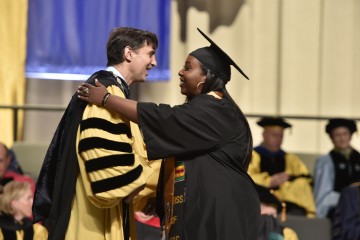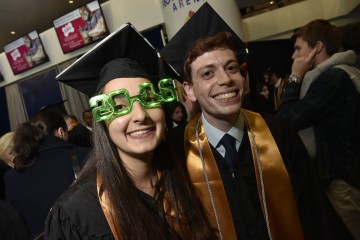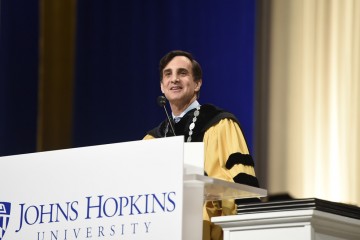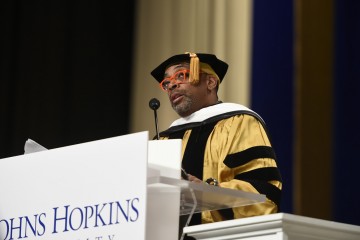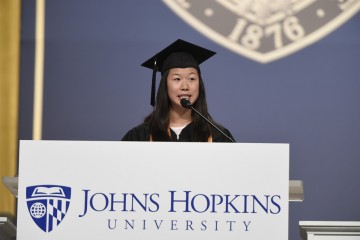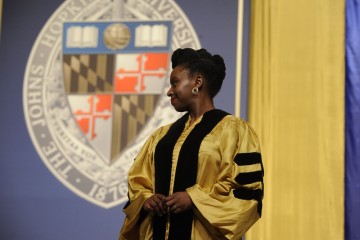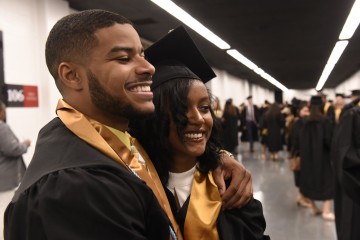Johns Hopkins University celebrated its 2016 graduates—more than 7,500 of them, including about 1,500 undergraduate students—at the universitywide commencement ceremony on Wednesday.
After 13 years at Homewood Field on the university's Homewood campus, the event moved this year to Royal Farms Arena in downtown Baltimore—a well-timed venue change during what has been an especially rainy month in the region.
JHU President Ronald J. Daniels noted that this year's graduates attended Johns Hopkins during a time of considerable social upheaval, in Baltimore and beyond.
"You have been here at a time when the national and local conversation has been framed by urgent and probing issues of race, class, politics, and justice—all issues that at their core are about the complex nature of human experience and perspective, and the institutions that shape, embody, and perpetuate that complexity," he said. "Sometimes we confront this complexity in people and institutions at some distance. But more often, we do so in very personal ways."
He shared his experience of walking each day from his home to Garland Hall along Bowman Drive, named for the university's fifth president, Isaiah Bowman. Bowman was a renowned geographer and was instrumental in bringing the Applied Physics Laboratory to Johns Hopkins. But, Daniels added, he was also "an unrepentant racist and anti-Semite."
"On that daily walk on Bowman Drive," Daniels said, "I am unavoidably in a dialogue with a man whose views I abhor, but whose legacy lives on at the university, the recipient of his successes and his failures."
He urged students to be open to the complexities and contradictions of humankind, and to "do the right thing," adding "we are counting on you to be among those who are able to see—indeed, who are determined to see—the full scope of the complexity of the human experience."
Filmmaker Spike Lee, one of eight honorary degree recipients and the featured speaker, was more pointed in his assessment of the social and political atmosphere.
"We are at a very crucial moment in history in these United States of America," he said. "And the way I'm looking at it today, to tell you the truth, things are looking dicey."
Lee spoke frankly about issues including racial profiling, mass incarceration, and police violence. He encouraged the graduates to "seize the day" and "make a better world."
"After you leave here today," he said, "it's real life, and real life is no joke."
Posted in University News
Tagged commencement 2016




